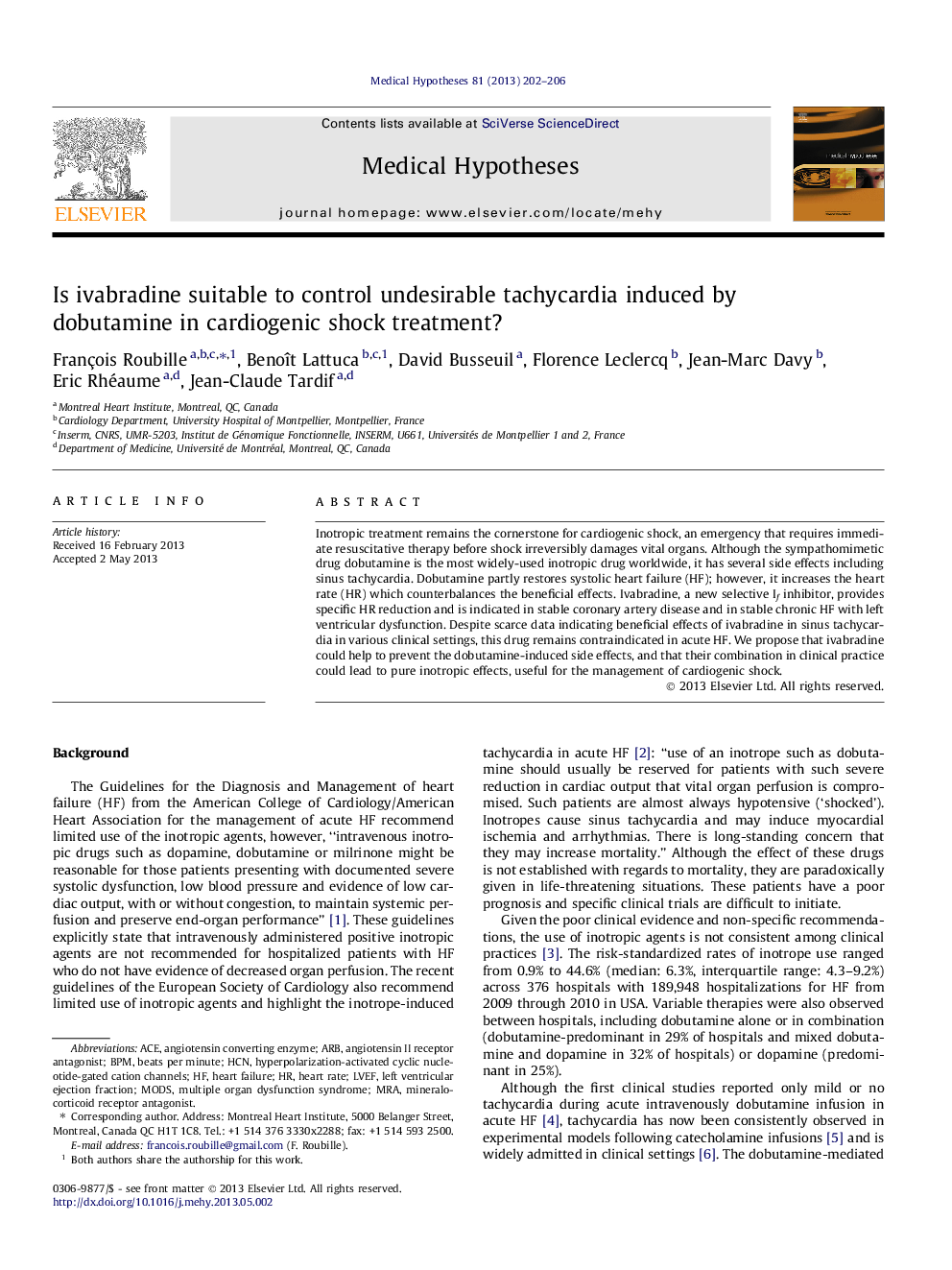| Article ID | Journal | Published Year | Pages | File Type |
|---|---|---|---|---|
| 2489091 | Medical Hypotheses | 2013 | 5 Pages |
Inotropic treatment remains the cornerstone for cardiogenic shock, an emergency that requires immediate resuscitative therapy before shock irreversibly damages vital organs. Although the sympathomimetic drug dobutamine is the most widely-used inotropic drug worldwide, it has several side effects including sinus tachycardia. Dobutamine partly restores systolic heart failure (HF); however, it increases the heart rate (HR) which counterbalances the beneficial effects. Ivabradine, a new selective If inhibitor, provides specific HR reduction and is indicated in stable coronary artery disease and in stable chronic HF with left ventricular dysfunction. Despite scarce data indicating beneficial effects of ivabradine in sinus tachycardia in various clinical settings, this drug remains contraindicated in acute HF. We propose that ivabradine could help to prevent the dobutamine-induced side effects, and that their combination in clinical practice could lead to pure inotropic effects, useful for the management of cardiogenic shock.
